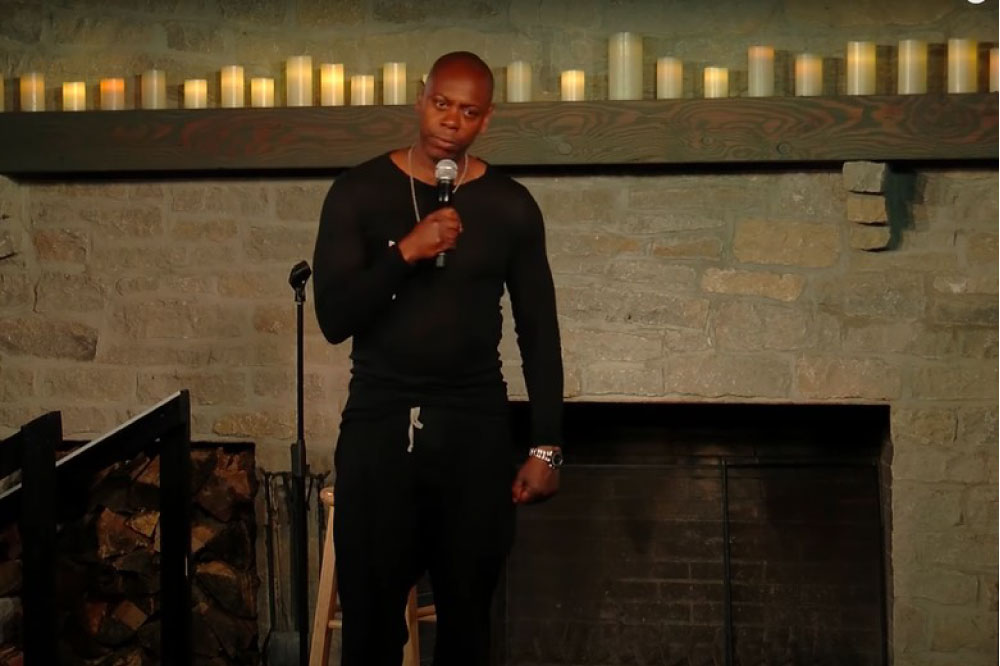
Netflix debuted Dave Chappelle’s most recent comedy special on YouTube. Like a lot of his work, 8:46 is brilliant. The title represents the eight minutes and forty-six seconds that former police officer, Derek Chauvin nonchalantly knelt on George Floyd’s neck until Floyd died. My son, Aaron and I listened to the show while we were driving home from Los Angeles on Saturday. From what I know about Chappelle, he takes a lot of time preparing and workshopping his routines so I was surprised to learn he had already performed a session on the Floyd murder. If you are offended by profanity or adult content, you shouldn’t watch it, but if you’re a Chappelle fan or someone interested in hearing one of the most intelligent and provocative stand-up comics of his generation speak about the current state of affairs, you can’t miss it. Chappelle doesn’t trivialize Floyd’s death by making insensitive jokes that would be far too soon to hear, rather he uses his razor-sharp perception to bring context, historical perspective and common sense to the Floyd tragedy and the public reaction that has ensued. In the routine, Chappelle takes on Candace Owens, Laura Ingraham, and even CNN’s Don Lemon, but the best parts of his performance are the stories he shares about the Northridge earthquake, the infamous Chris Dormer, Kobe Bryant and the legion of Black men who have been murdered by police officers in recent years.
I have been both inspired and saddened by the reactions I have seen online from friends and acquaintances. The last few weeks have brought out the best and worst of just about everyone. Racial inequality is the biggest threat to the American system and something even I have underestimated. When people lose hope and trust in the system, they feel they have nothing to lose, and it is only a matter of time before they rebel. If enough people feel that way at the same time things can get bad really quickly. It feels like systemic racism and economic disparity are pushing us closer to a breaking point. My hope is that people who have never been a victim of racism spend more time listening and less time talking. I’ve seen some people comment on social media that racism is a state of mind and your quality of life has more to do with what you do, than anything the government or anyone else can do for you. I think this is a perfectly acceptable way to think – as long as you don’t deny that racism exists – or feel that you are better than other victims who don’t have it as good as you. In other words, you can work hard to make the most of the hand you were dealt in life, while simultaneously having compassion for others. To quote Dave Chappelle, “It gets tiring explaining what is obvious.”
I was raised in the civil rights era, so it saddens me when I realize that very little progress has been made. My son says that he doesn’t believe racism will disappear in America until his generation is in charge. Cynically, I told him that those of us born in the sixties said basically the same thing a few decades ago. We debated the differences in our respective eras for a while, but I think both of us felt a little spent at the end of our ride. We all need to do more to rid our country of hatred. You can see Dave Chappelle’s special on YouTube.
What if Donald Trump’s greatest strength is something the rest of us refuse to acknowledge? In this thought-provoking episode, Gary Acosta explores what liberals, global leaders, and entrepreneurs might learn from Trump’s approach to leadership. From mastering direct communication to shaping loyalty through perceived authenticity, Gary dives into the mechanics of modern influence—even when the messenger is flawed. Whether you agree or disagree with Trump, the lessons here reveal surprising truths about power, persuasion, and strategy in today’s world.
What do people really mean when they say, “DEI is destroying our country”? In this powerful episode, Gary Acosta takes on the backlash against Diversity, Equity, and Inclusion—and asks whether it’s become a coded way to express racism. He breaks down myths about lowered standards, exposes the hypocrisy behind legacy admissions, and challenges the silence around nepotism and privilege. DEI may be a polarizing term today, but Gary argues that its core values remain essential to capitalism, innovation, and fairness in America’s future.
The Latino brand impacts every aspect of our lives—from how we're viewed in business and media to the opportunities we’re given. In this first episode, Gary Acosta explores why a unified, empowered narrative is essential for Latino prosperity. Learn what Gary shared at the United Nations, how he raised $100M for Latino-led ventures, and why changing the perception of our community is the key to unlocking capital, influence, and success.
